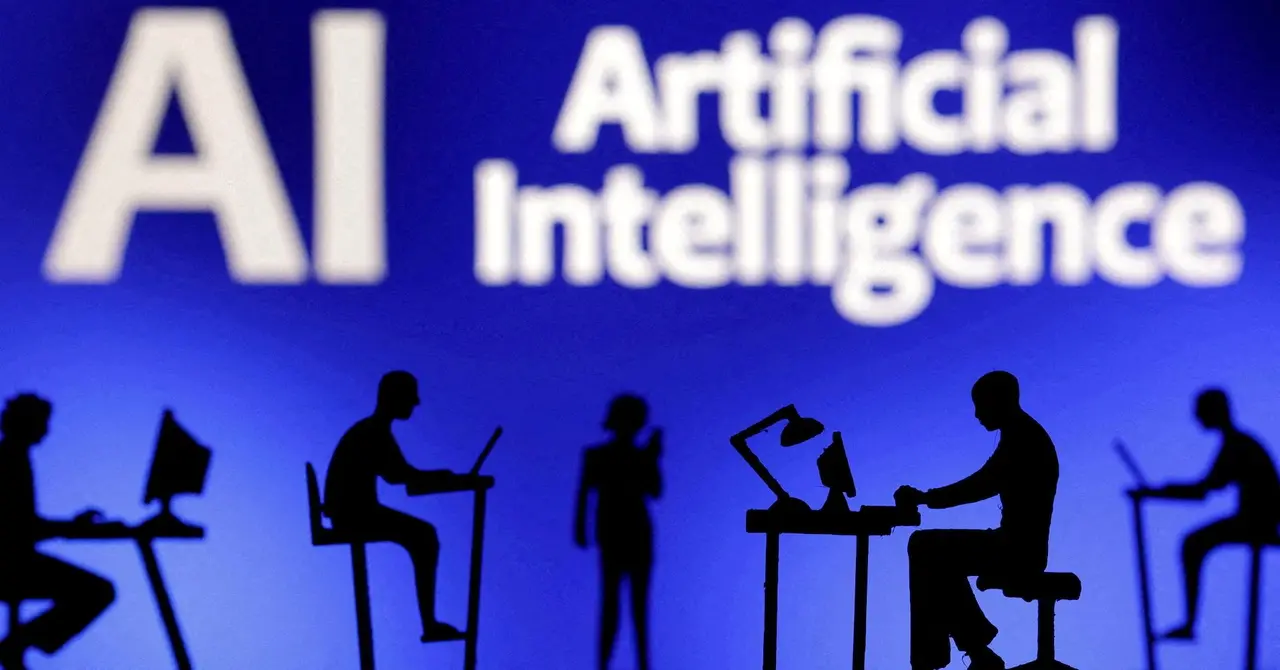AFL-CIO Launches 'Workers First Initiative on AI' to Protect Labor Rights in the Age of Artificial Intelligence
2 Sources
2 Sources
[1]
Major federation of unions calls for 'worker-centered AI' future
On Wednesday, the largest US group of unions called on employers and policymakers to join in an effort it's calling the "workers first initiative on AI." Functionally, the effort by the American Federation of Labor and Congress of Industrial Organizations (AFL-CIO) amounts to strengthened collective bargaining in the workplace and advocating for regulations to limit the negative effect of AI on workers, in addition to an education campaign. "We reject the false choice between American competitiveness on the world stage and respecting workers' rights and dignity," AFL-CIO president Liz Shuler says in the press release. The AFL-CIO's membership includes 63 unions and nearly 15 million workers, ranging from pro hockey players to nurses to merchant mariners. The AFL-CIO released a list of top priorities for a "worker-centered technological future." These priorities include, among others, stronger enforcement of labor rights against AI-powered workplace surveillance or layoffs; protections against copyright infringement; retraining programs for workers to enter the AI workforce; and transparency into AI systems purchased with taxpayer dollars. While the AFL-CIO's priorities are clear, the group does not specify which "serious consequences" employers should face "for using technology to undermine democracy and civil rights." However, the AFL-CIO's interim director of its Technology Institute, Ed Wytkind, tells The Verge that possible remedies used for decades to protect workers included court cases, fines, or criminal charges. Wytkind calls collective bargaining "one of the best tools available to manage this transition" to a future with AI. He points to how the UAW worked with carmakers to automate the auto sector starting in the 1950s. "It's why you have state-of-the-art equipment in some transportation sectors with workers working with that equipment quite well," he says. The group also says it will use the power of collective bargaining to fight against AI-powered workplace surveillance. Wytkind says contract negotiations are a tried-and-true method of barring employers from hiding video cameras around the workplace or other surveillance issues that started in the 1980s. (Now, however, most office technologies can surveil workers, he says.) The AFL-CIO also says that workers need to be involved in the AI development process. It is a big ask of tech companies, but the AFL-CIO points to the government-funded AI research as the place for workers and unions to have a say. "Incorporating worker voices and unions into these research initiatives should be a requirement and a national priority," the AFL-CIO says. In practice, Wytkind says that workers can help companies save money by avoiding purchasing useless or unsafe technology. In addition to labor efforts, the AFL-CIO is focused on state and national bills to regulate AI. "There are ways to put in the law and in the regulations, a requirement that you have workers involved in the future of new technologies," Wytkind says. Regulating AI has been an uphill battle at both the state and federal level. When bipartisan efforts came together to cut the AI moratorium of state-level regulation from President Trump's Big Beautiful Bill, an action which the AFL-CIO endorsed, Trump revived the idea in his AI action plan. In California, the legislature passed the AFL-CIO-backed Senate Bill 7, requiring humans to oversee AI-enabled firings and any workplace discipline. California Gov. Gavin Newsom then vetoed the "No Robo Bosses Act" on October 13th. Wytkind calls Newsom's veto a disappointment but not a deterrent. The AFL-CIO will continue to bring "strong, commonsense guardrail policies to state legislatures -- and, oh by the way, it is one of the issues that unifies Republicans and Democrats in ways that we don't see almost in any other issue area," Wytkind says. The AFL-CIO faces monied opponents. AI super PACs are in vogue this year. Meta created its own pro-AI California super PAC to funnel money into ads promoting the company's own political agenda in August. The AFL-CIO's California chapter spent over $2 million in political donations to California elected officials in 2024, according to the latest data available in the CalMatters Digital Democracy database. That is over 30 times the $70,000 that the group spent in 2023 in California. The AFL-CIO has never passed a unified technology agenda like this before, Wytkind says. Prior tech agendas typically focused more on one sector or type of worker than others. Not with AI, Wytkind says. "You cannot point to a single sector of the economy or public services that will not be affected by AI, at least moderately, if not overwhelmingly."
[2]
Largest labor federation warns of worker displacement, launches AI guidelines
Why it matters: Deemed the "Workers First Initiative on AI," the federation warns of the looming worker bloodbath many leaders in AI have predicted, and proposes a list of principles that would protect workers rights if implemented. The big picture: President Trump's recently unveiled AI Action Plan essentially took a deregulatory stance on AI policy, directing the federal government to remove "burdensome" red tape slowing down innovation. What they're saying: "We reject the false choice between American competitiveness on the world stage and respecting workers' rights and dignity," American Federation of Labor and Congress of Industrial Organizations President Liz Shuler said in a news release announcing the intiative. * The 63 unions that make up the federation wrote that there's a "path where new technology makes work better and safer" but the changes "must never be shoved down the throats of a workforce or used to undermine the labor rights that built the middle class." * "Harmful AI is not inevitable - the choices we make today will determine the future ... and doing nothing ... is a choice - the wrong choice," they wrote. What's inside: The federation calls for transparency in data collection, human reviews of automated decision making and the prohibition of AI as a surveillance tool that could participate in union-busting or penalize workers. * They request the government disclose where and how AI is being used in federal systems, and increase regulations against AI abuses such as spreading misinformation or deepfakes, which "undermines" American democracy and civil rights. * The federation also demands companies explore retraining opportunities to ensure workers know how to use AI instead of applying a "low-quality band-aid" that doesn't meaningfully help workers transition to new technologies. * The report also calls for intellectual property rights for creative employees already seeing their job opportunities "stolen" by AI models trained on "their works, their voices, and their likenesses." Threat level: There's widespread concern that AI could trigger broad layoffs, including estimations of up to half of entry-level white-collar jobs being wiped out in the next 5 years. * Older, more experienced workers are not affected en masse yet, but a lack of new talent gaining experience in key industries could lead to a talent shortage in the future. Yes, but: In the nearly three years since ChatGPT launched, researchers have found no clear interruption to the labor market, according to nonpartisan policy researchers at the Yale Budget Lab. * Additionally, many employers still skeptical of AI want to see a human somewhere involved with the production process, supervising what the models do, according to Upwork data reviewed by Axios' Megan Morrone. * That research found that AI was replacing low-complexity, repetitive work, but also fueling the market for employees capable of using the technology to supplement their abilities. Zoom out: Policymakers aren't blind to the disruption that AI could have on the job market, but concerns about staying ahead of China in the AI race have aligned regulators with Big Tech's "move fast and break things" philosophy. * A group of lawmakers scuttled a moratorium on state-level AI regulations from the one big, beautiful bill earlier this year due to pushback from state leaders and other consumer-advocate groups.
Share
Share
Copy Link
The largest US federation of unions, AFL-CIO, unveils a comprehensive plan to address the impact of AI on workers. The initiative calls for stronger collective bargaining, regulatory measures, and worker involvement in AI development.
AFL-CIO Launches "Workers First Initiative on AI"
The American Federation of Labor and Congress of Industrial Organizations (AFL-CIO), the largest federation of unions in the United States, has unveiled a groundbreaking initiative aimed at shaping the future of artificial intelligence (AI) in the workplace. Dubbed the "Workers First Initiative on AI," this comprehensive plan seeks to address the potential impacts of AI on workers' rights, job security, and overall well-being
1
.
Source: The Verge
Prioritizing Worker-Centered AI Development
At the heart of the initiative is a call for a "worker-centered AI" future. AFL-CIO President Liz Shuler emphasized the federation's rejection of the "false choice between American competitiveness on the world stage and respecting workers' rights and dignity"
1
. The initiative outlines several key priorities, including:- Strengthened collective bargaining to address AI-related workplace issues
- Advocacy for regulations to limit negative effects of AI on workers
- Enhanced protections against AI-powered workplace surveillance
- Retraining programs to help workers transition into the AI workforce
- Transparency in AI systems purchased with public funds
Collective Bargaining as a Tool for AI Integration
Ed Wytkind, interim director of AFL-CIO's Technology Institute, highlighted the importance of collective bargaining in managing the transition to an an AI-driven future. He drew parallels to past technological shifts, such as the automation of the auto sector in the 1950s, where unions played a crucial role in ensuring worker interests were protected
1
.Legislative Efforts and Challenges
The AFL-CIO is actively pushing for state and national legislation to regulate AI. However, these efforts face significant challenges. In California, despite the federation's support, Governor Gavin Newsom vetoed the "No Robo Bosses Act," which would have required human oversight of AI-enabled firings and workplace discipline
1
.Related Stories
Concerns Over Job Displacement
The initiative comes amid growing concerns about AI's potential impact on employment. Some estimates suggest that up to half of entry-level white-collar jobs could be eliminated in the next five years due to AI advancements
2
. However, recent research has shown no clear disruption to the labor market since the launch of ChatGPT, with AI primarily replacing low-complexity, repetitive work while creating new opportunities for workers skilled in AI technologies .Balancing Innovation and Worker Protection
The AFL-CIO's initiative stands in contrast to the deregulatory approach taken by some policymakers. President Trump's AI Action Plan, for instance, aims to remove "burdensome" regulations to accelerate innovation
2
. The federation argues that harmful AI implementation is not inevitable, and that choices made today will shape the future of work and workers' rights.As the debate over AI regulation continues, the AFL-CIO's "Workers First Initiative on AI" represents a significant effort to ensure that the interests of workers are not overlooked in the rush to embrace artificial intelligence technologies.
References
Summarized by
Navi
Related Stories
AI Summit in Paris Sparks Debate on Technology's Impact on Jobs and Society
11 Feb 2025•Policy and Regulation

Teamsters President Opposes 10-Year AI State Regulation Ban Amid Congressional Debate
26 Jun 2025•Policy and Regulation

AI-Driven Job Displacement: A Looming Crisis for White-Collar Workers
15 Jul 2025•Technology

Recent Highlights
1
Google Gemini 3.1 Pro doubles reasoning score, beats rivals in key AI benchmarks
Technology

2
Meta strikes up to $100 billion AI chips deal with AMD, could acquire 10% stake in chipmaker
Technology

3
Pentagon threatens Anthropic with supply chain risk label over AI safeguards for military use
Policy and Regulation





